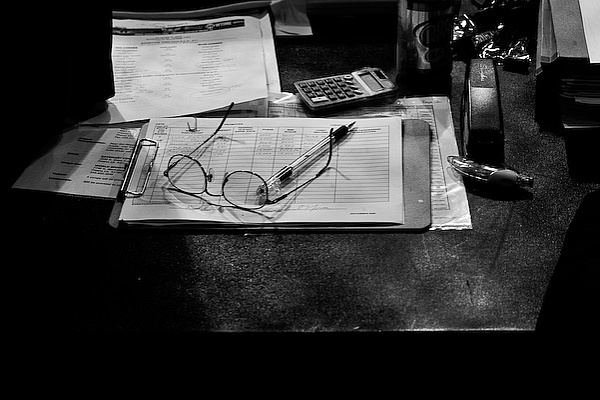Taking Responsibility for Amateur MMA
Jake Rossen Jul 26, 2010

File photo: Stephen Albanese | Tailstar.com
BleacherReport.com’s David Mayeda, Ph.D., writes in a column dated July 23 that industry leaders UFC and Strikeforce “need to consider investing their profits in smaller organizations to help improve an infrastructure that bolsters safety precautions…this would be an investment in the fighters, who at the lower levels receive less reward for more risk.”
Advertisement
Mayeda is also on point in noting that efforts by the UFC to better regulate these obscure events would hardly be philanthropic: athletes have to come from somewhere, and the more they’re protected at the lower levels, the more fit and prepared they’ll be to produce revenue for a larger organization in the future. Even World Wrestling Entertainment, hardly the refuge for those who value their health, has a hand in a developmental league: talent that does not meet their minimum requirement for deltoid size can sharpen their tools and tongues in semi-obscurity until they’re ready.
The UFC’s absence from this discussion is reasonable: they have to
worry about the UFC. Not the organization per se, but the acronym
-- the brand.
Let’s suppose Zuffa took it upon themselves to develop a national feeder regulatory body: we’ll call it the PFC (Penultimate Fighting Championship -- I’ll be here all week, gang). It would mimic USA Boxing, which seeks to protect and sanction that sport at the amateur level and can provide oversight regardless of state athletic commission involvement. While promoters would ostensibly have to abide by the rules set in place, it would be impossible to survey every bout. Mismatches would happen, officials would drop the ball, and -- if for no other reason than the law of averages -- a serious injury or tragedy could occur. The moment that happens, the media would draw a straight line from Palookaville to Las Vegas. It would become a UFC-branded incident. Broken spines are not a Budweiser-friendly circumstance.
Realistically, it won’t happen. The UFC is too protective of their banner. So what’s pragmatic? You could establish a regulatory body outside of the UFC’s trademark, something already in motion with California’s CAMO (California Amateur Mixed Martial Arts Organization, which really should read CAMMAO) league that seeks to regulate amateur-level events. They’ve received the blessing of the California State Athletic Commission, but there are traces of the money-grab at work: amateurs pay a “license fee” of $115 and have to pony up for their own blood work. Want to wear your own gloves or rash guard? Nothing doing: CAMO supplies the required gear. Even cornermen have to pay to be licensed. CAMO might have noble intentions, but their execution leaves a lot to be desired.
Avenue two is piggybacking on an existing organization like USA Boxing, which -- depending on whom in the office you speak with -- has either an ambivalent or closeted admiration for mixed martial arts. They’ve already cast their net out, which would seem to make national amateur regulation less of a headache, but the hurdle remains: some in boxing resent MMA, and trying to merge the two on any level is like putting two wolverines in a sack.
Option three remains the most promising: continued pressure from media and persons of influence (like the UFC’s Marc Ratner) for state commissions to extend the same standards to amateur shows. Ohio, New Jersey, and Pennsylvania all have an eye on feeder leagues and hold them to the same standards as professional events. Some, like Ohio, remove weapons (like knees to the head) that can make a young career more traumatic.
However it’s done, it is absolutely crucial that this industry protects its young athletes. Fighters who compete in unseen, untelevised bouts are no less deserving of care than the faces on billboards. The longer it takes to install that security, the better the chance an event wrap-up turns into the anatomy of a disaster.






